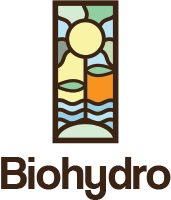Hydroculture Plants
Home /
Hydroculture Plants

Soil-Free Plants
Soil-free plants, known as Hydroculture plants, are grown in water and expanded clay pebbles known as LECA, or Lightweight Expanded Clay Aggregate instead of soil.
LECA not only provides a sturdy support base for the roots of your Hydroculture plant, but also retains and allows available oxygen, water and nutrients to diffuse throughout the plant.
Conventional planting with potting soil, a 70% peat based product, is only the ideal medium for professional greenhouse growers to use in a controlled environment where light, humidity, temperature, water, and fertilizer are closely regulated. However, this method becomes flawed when a consumer brings this potted plant home and strays from the regimented schedule the grower has followed.
Hydroculture provides you with a fool-proof system that maintains the plant’s health as well as extending its shelf life.

Hydroculture plants are the perfect solution for people who want to maintain their busy lifestyle but also want to enjoy the relaxation that houseplants offer.
All of the guesswork is taken out of watering, fertilizing and repotting. Depending on the plant container, hydroculture plants only need to be watered once every two to four weeks and the indicator gauge included with each plant tells you when and how much to water.
Benefits of Hydroculture:
-
Health, Longevity, Sustainability!
Hydroculture plants thrive beautifully because they have the perfect combination of oxygen, water and nutrients. GreenSpacers’ Hydroculture indoor office plants are grown in an inorganic, sterile substance known as LECA, which provides a sturdy support base for the roots of your Hydroculture plant, but also retains and allows available oxygen, water and nutrients to diffuse equally throughout the plant.
-
No Soil-Borne Molds, Fungi, Insects!
Soil-based plants remain moist indefinitely, which provides the perfect breeding ground for molds, fungi, bacteria and insects. Not only are these pests detrimental to the health of the plant, but also pose a nuisance to humans. Adults and larvae of soil insects may fly or crawl around the soil surface as well as the home or office in which the plant is placed. Indoor mold is also likely, since mold feeds from dead moist organic matter like wood, paper and plant soil. The top layer of LECA is always dry and free of organic matter, resulting in a mold- and insect-free plant.


